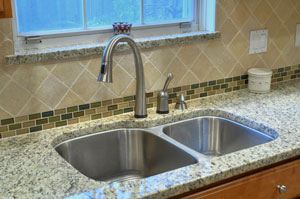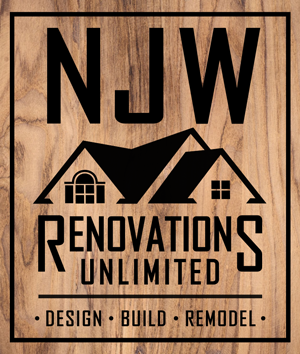
Remember the old saying about kitchen floors being so clean that you could eat off them? Well how about that the kitchen countertops can be strong enough to walk on? As consumers venture out to select a countertop for their project, they begin by visiting showrooms of stone suppliers where they can get the most helpful information. This process usually begins with 4 simple questions by the consumer.
- What is the difference between Granite vs Solid Surface Countertops?
- What are the advantages of each?
- How much will it cost?
- How do I take care of my countertop?
In order for a stone professional to give you the most suitable option for your countertop, they will want to know some details about the use of this space.
- How much cooking will be done in the kitchen?
- Is the kitchen a frequent place of gathering? Is it the room most used for functions or events?
- How much is in your budget for countertop material?
- What are you looking for in the appearance? Pattern, Movement, Solid color…
- A desired texture? Shiny, Honed, Leathered…
Let’s begin discussing what the difference between the various materials.
There are many rumors out there about the use of granite and most of them are untrue. But before we can dispute any rumors, we need to look at examine the advantages and disadvantages on the various surfaces. Solid Surfaces are defined as a mixture of real stone that is mixed with either acrylic or polyester resins. This will differ depending on each manufacturer. Some popular names are Quartz, Silestone, Zodiaq, and Caesar Stone. Other types of solid surfaces are Laminate and Corian. Granite, as we all know is a natural stone composed of quartz and feldspar. And, in case you didn’t know, quartz is the hardest mineral in granite and the reason granite is scratch resistant.
Advantages of Solid Surfaces claimed by manufactures are….
Consistent color and pattern throughout the material and it will not wear. Although many of solid surfaces are Ultraviolet sensitive, so I wouldn’t recommend using them outside in direct sunlight.
- Numerous color selections.
- Easy to clean.
- Non porous surface will resist stains because liquid can’t penetrate.
- Nicks and scratches can be repaired.
Advantages of Granite are…….
- Endless patterns and colors. Each piece is unique.
- Acid-resistant
- Harbors no bacteria or radon
- Will not scorch or burn when hot pots are set on it.
- Stains can be removed and scratches can be repaired.
Now, how about cost?
By comparison, the square foot costs for granite, solid surface and engineered stone include fabrication and installation, so you have no opportunity to price shop. Solid Surface and Granite countertops can cost consumers anywhere between $50 and $90 per square foot installed. Prices also vary widely due to the wide variety of styles and designs.
The cost of granite countertops also depends on where you buy the material. Even though there are a number of reputable suppliers for Granite Countertops in Columbus Ohio, one particular color can range in cost depending on the supplier. And, how much you pay also will vary with where you live. You can’t do much about this! Edge treatments, special features, such as 45-degree corners, and radius and arcs will affect the price as well. A typical kitchen countertop is about between 28 and 30 linear feet.
Often, laminate counters are sold by the linear foot, but other materials such as solid surface, natural stone, and engineered stone are sold by the square foot. Since counters are 24 inches deep, that means a 30-foot linear counter has 60 square feet. Remember this difference when you shop.
Once your new countertop is installed, the last question remaining is “How do I care for my countertop?”
This is the easy part of the process and I think most already know the answer. Your countertops should always be sealed at installation or before use. There are a variety of sealers on the market today. Depending on where you purchase your countertop, usually sealing is included in their installed estimate. There are also a variety of cleaners that are available through most stone suppliers and you can check with them on a suitable cleaner for your needs. Just remember that vinegar, alcohol and ammonia should not be included on that list of suitable cleaners. They could have a negative effect on the integrity of your countertop.

